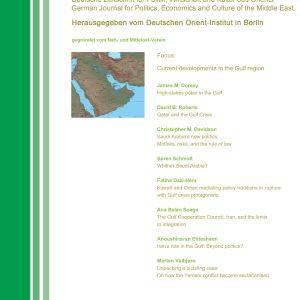Description
Modern Afghanistan has never been able to establish a powerful central state despite the country having experienced different political systems. The decades-long conflicts are rooted in the lack of an effective, communicative relationship between the centre Kabul and rural areas. The issue of rural locality has been intensified by a huge diversity in terms of ethnicity, religion, sect, language, and culture. Thus, rurality is not merely interpreted as locality, but as ethnicity, language, and religion. This article briefly investigates the concept of local governance in Afghan politics.
Katja Mielke, PhD, works as Senior Researcher at the Bonn International Centre for Conflict Studies (BICC). She conducts research on state-society relations in contexts of conflict and crisis, political and social mobilisation, migration and peacemaking. Her regional focus is on Afghanistan, Pakistan, Central Asia, and Iraq and its neighbourhood.




Reviews
There are no reviews yet.